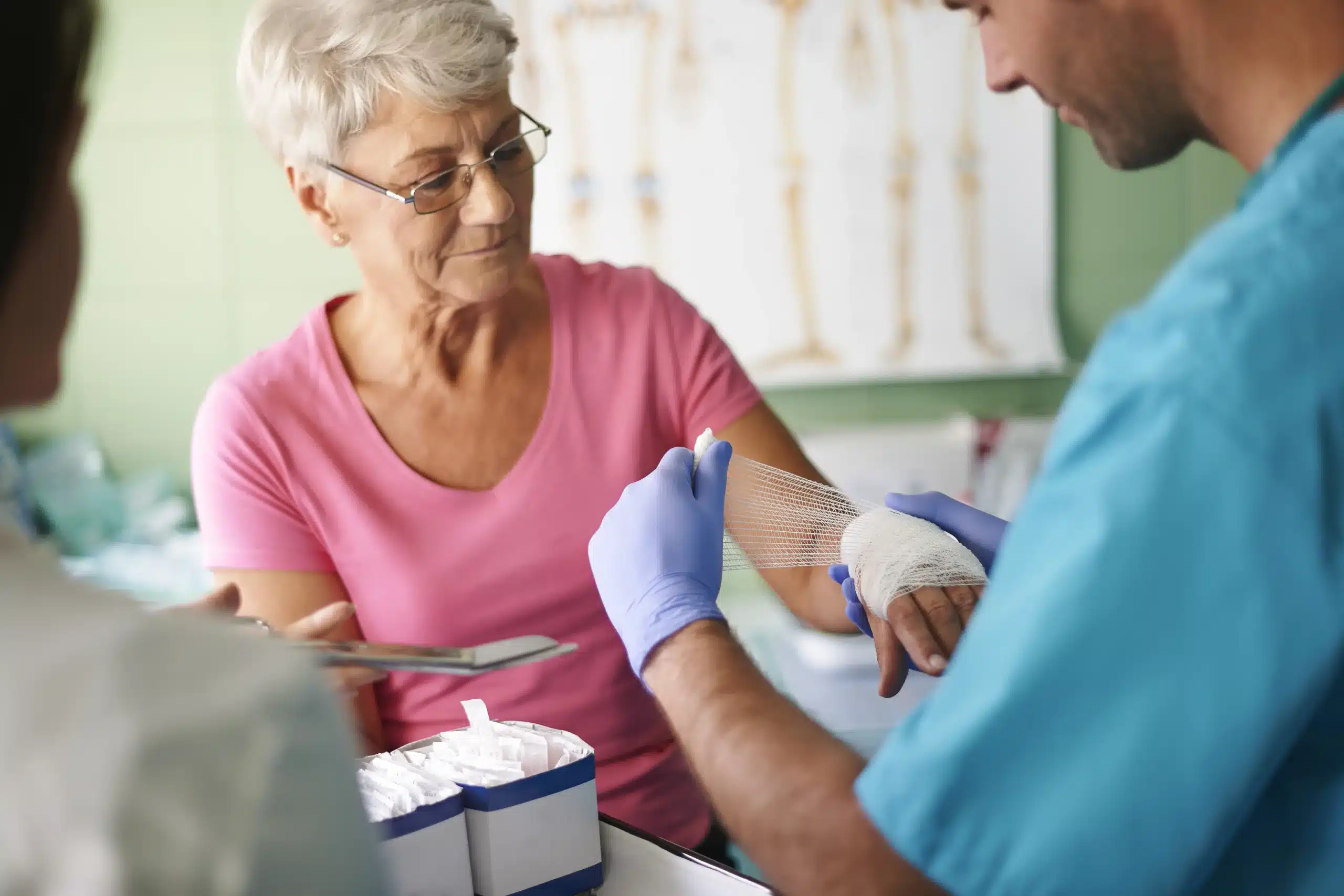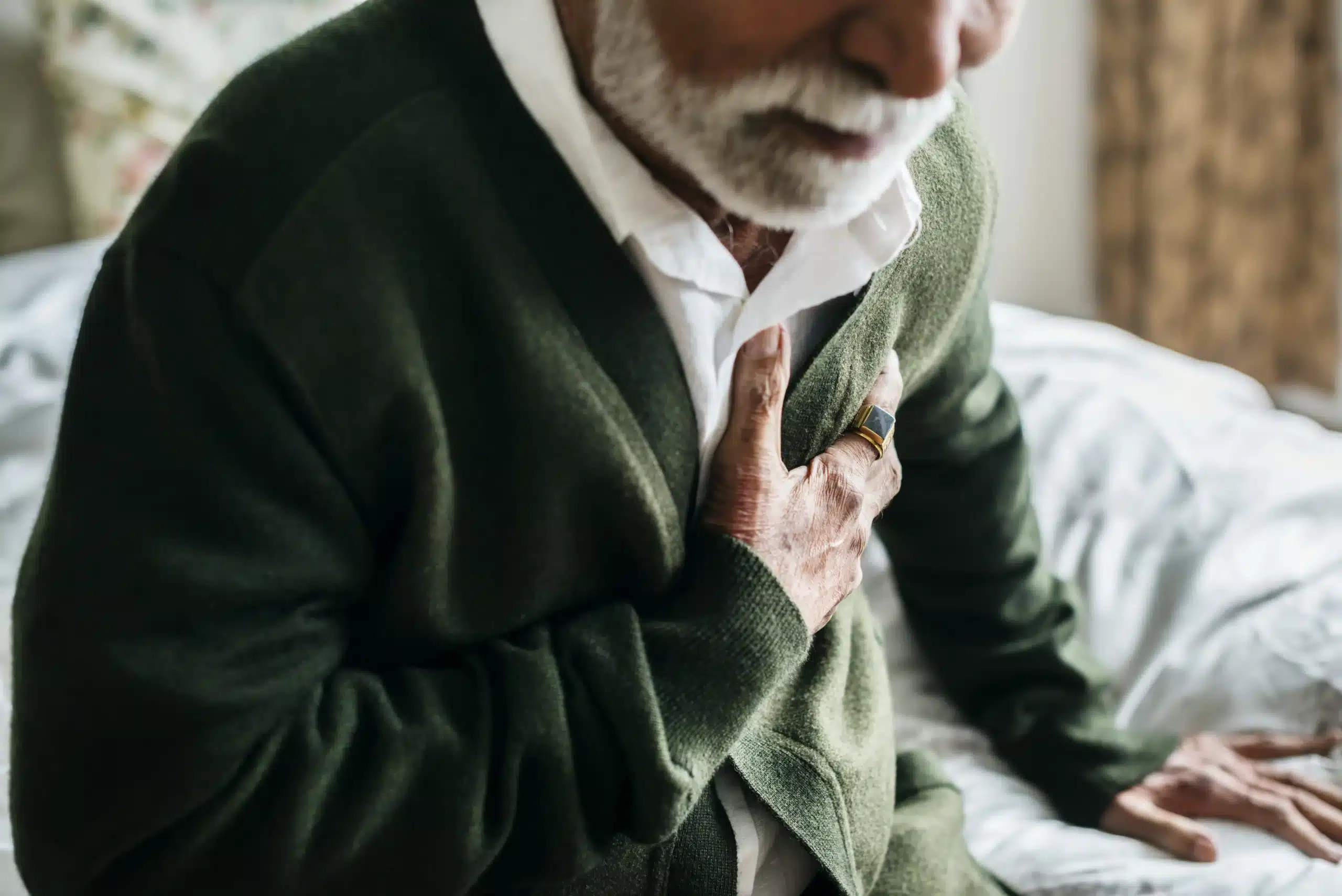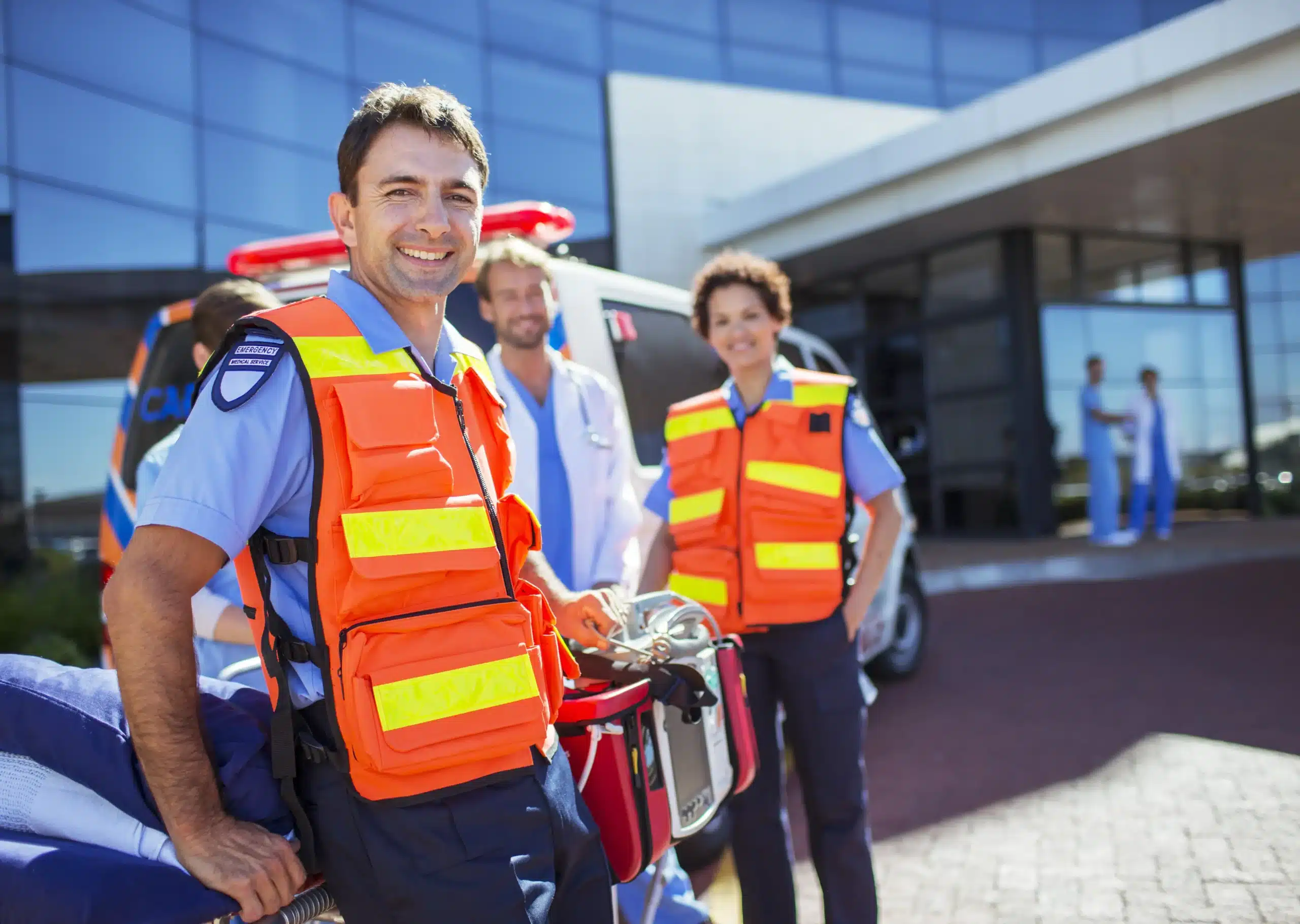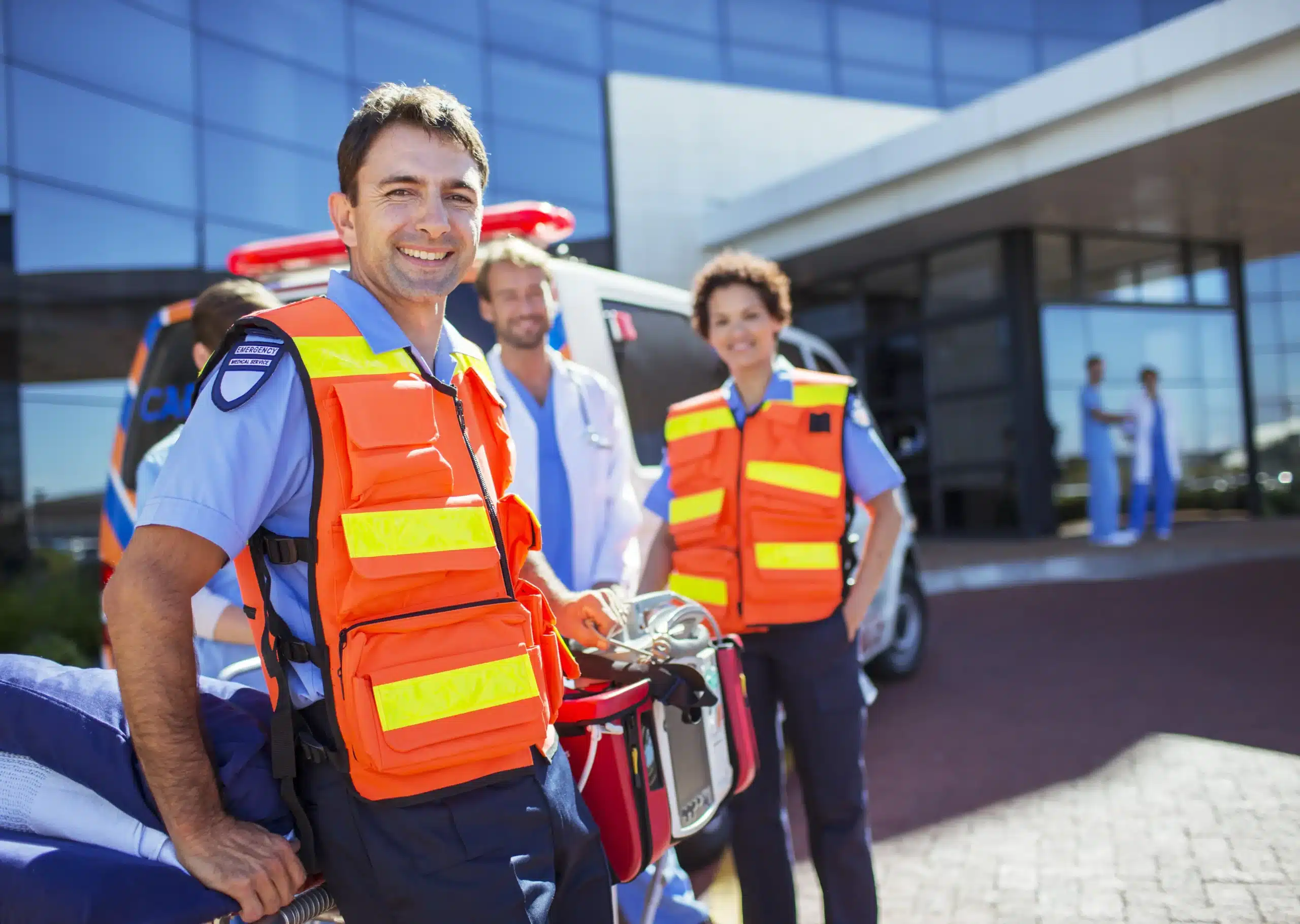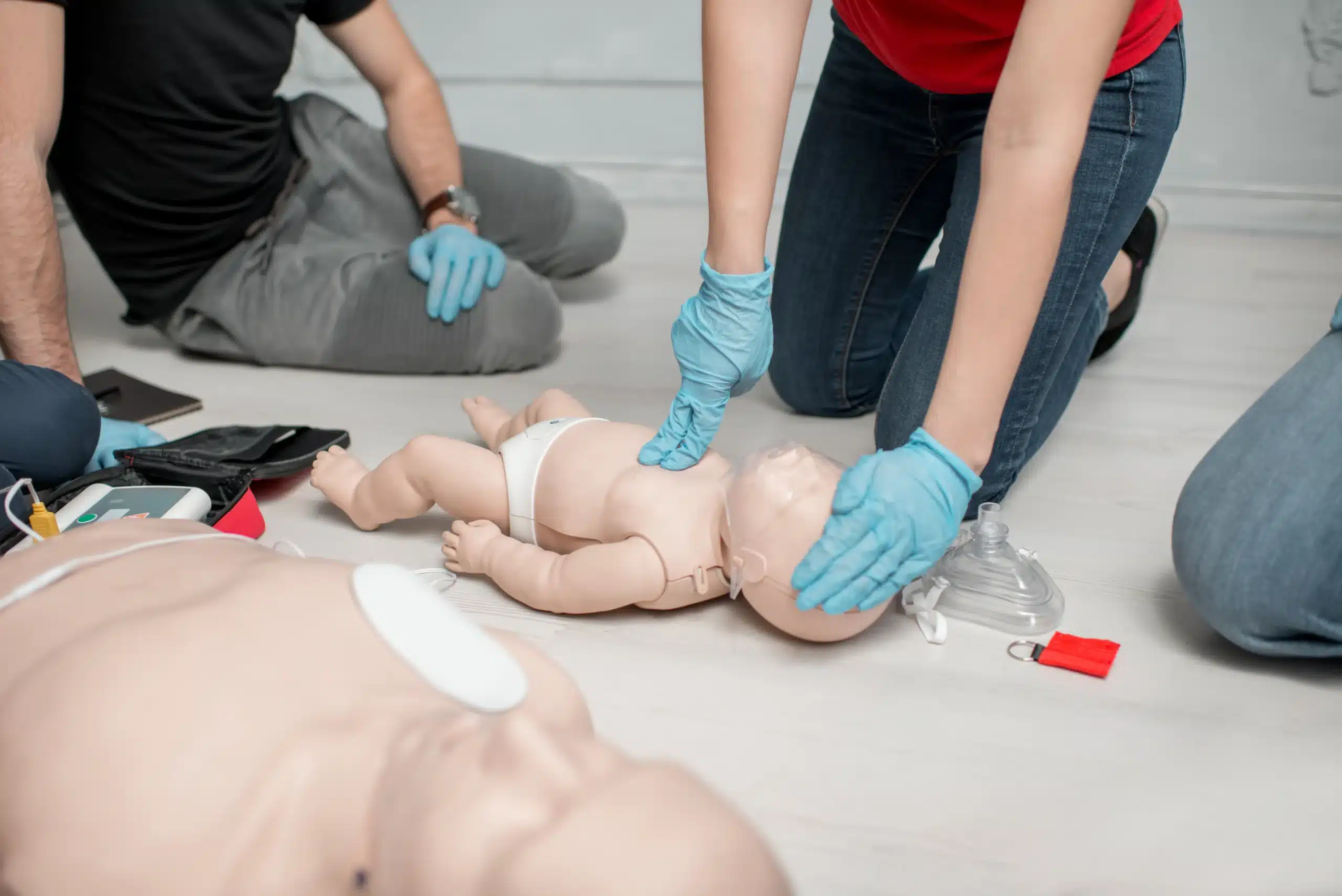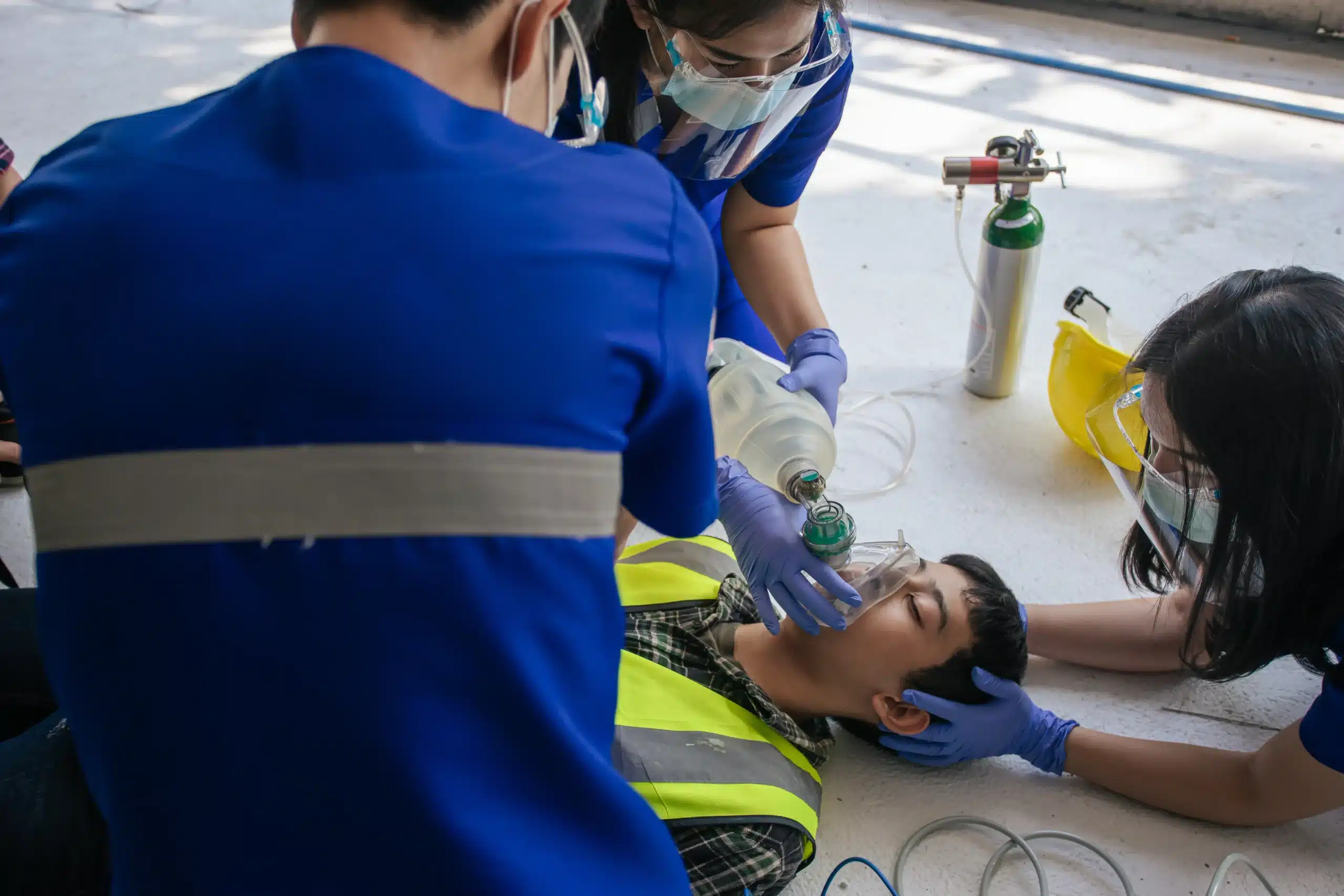In a medical emergency, seconds can matter. Knowing CPR can give you the power to act quickly and potentially save a life. This comprehensive guide explores the different types of cpr courses in Antioch, including BLS, ACLS, PALS, and First Aid, offered by Safety Training Seminars. Whether you’re a healthcare professional, a childcare provider, or simply someone who wants to be prepared, we’ll help you find the right course to fit your needs. We’ll also discuss the benefits of AHA certification, address common CPR myths, and provide practical tips for choosing a course provider in Antioch, Brentwood, or Pittsburg.
Key Takeaways
- Find the right CPR class for you: From basic CPR and First Aid to advanced certifications like ACLS and PALS, there’s a course designed to meet your specific needs, whether you’re a healthcare provider, childcare professional, or simply a concerned citizen.
- AHA certification ensures high-quality training: AHA-certified courses adhere to the latest research and best practices, giving you the skills and knowledge to confidently respond to emergencies. Safety Training Seminars offers a range of
- CPR training is more accessible than ever: With flexible schedules, various locations, and competitive pricing, including discounts for groups, there are plenty of options to make learning CPR fit your lifestyle and budget.
What is CPR? Antioch Courses
Cardiopulmonary resuscitation (CPR) is a lifesaving technique used when someone’s heart stops beating (cardiac arrest) or they stop breathing. It combines chest compressions and rescue breaths to circulate oxygenated blood to vital organs until professional medical help arrives. Knowing CPR is crucial, as it can dramatically improve the odds of survival during these emergencies.
Antioch offers a variety of AHA-certified courses to teach people how to perform CPR effectively. These courses cover topics like Basic Life Support (BLS), Advanced Cardiovascular Life Support (ACLS), and Pediatric Advanced Life Support (PALS). Each course caters to different needs, from healthcare professionals to everyday people, ensuring everyone can learn to respond confidently in a crisis. Local training centers in Antioch offer convenient in-person and online CPR training options, often taught by experienced healthcare providers who follow AHA standards. You’ll also find opportunities for community engagement through workshops and training sessions, which help build a culture of preparedness and safety in Antioch.
CPR Course Types
Knowing which CPR course is right for you can feel overwhelming with so many options. This section breaks down the different types of CPR training offered by Safety Training Seminars in Antioch, so you can choose the best fit. We offer courses for everyone from healthcare providers and childcare professionals to concerned parents and community members.
Basic Life Support (BLS)
The BLS course provides the foundational knowledge and skills to respond to life-threatening emergencies. It covers core CPR techniques for adults, children, and infants, along with AED (automated external defibrillator) use and relieving choking. This course is ideal for healthcare professionals and anyone who wants a comprehensive understanding of CPR. It’s also a prerequisite for more advanced courses like ACLS and PALS.
Advanced Cardiovascular Life Support (ACLS)
ACLS builds upon the skills learned in BLS and focuses on advanced life support techniques for adults. This course covers a wider range of cardiovascular emergencies, including stroke and heart attack. It emphasizes teamwork, communication, and critical thinking in high-pressure situations. ACLS certification is essential for doctors, nurses, paramedics, and other healthcare professionals who manage cardiac arrests and other cardiovascular emergencies.
Pediatric Advanced Life Support (PALS)
The PALS course is designed for healthcare providers who treat infants and children. Like ACLS, it goes beyond basic CPR and teaches advanced life-saving interventions for pediatric emergencies, including respiratory distress and shock. PALS certification is crucial for pediatricians, pediatric nurses, emergency medical technicians, and other professionals working with young patients.
First Aid Training
While not strictly CPR, first aid training is a valuable complement to any CPR course. It equips you with the skills to manage various injuries and medical emergencies, from minor cuts and burns to more serious situations like fractures and allergic reactions. Learning first aid can help you provide immediate care until professional medical help arrives.
Hands-Only CPR
Hands-only CPR is a simplified version of CPR that focuses solely on chest compressions. The American Heart Association promotes this technique for bystanders who witness a sudden cardiac arrest in an adult. While conventional CPR with rescue breaths is still the standard for healthcare providers and those certified in BLS, hands-only CPR can be a life-saving intervention for untrained individuals. It empowers anyone to take action and potentially improve the chances of survival.
Why Choose AHA Certification?
When you’re ready to learn CPR, choosing the right certifying body matters. The American Heart Association (AHA) sets a high bar for CPR training, making it a trusted and respected choice. Here’s why AHA certification stands out:
American Heart Association Standards
The AHA is known for its rigorous, science-backed approach to CPR education. AHA-certified courses, like those offered at Safety Training Seminars, follow strict guidelines, ensuring you learn the most up-to-date and effective techniques. This commitment to quality and continuous improvement means your training reflects the latest advancements in resuscitation science. Our BLS course is one example of our commitment to the AHA’s high standards.
AHA Certification: Validity and Recognition
AHA certification is widely accepted and recognized by employers, healthcare facilities, and other organizations. It signals that you’ve received high-quality training and possess the skills to respond confidently in an emergency. This broad recognition makes AHA certification a valuable asset, whether you need it for your job, a volunteer role, or simply for personal peace of mind. For healthcare providers, our ACLS course provides the advanced training and certification you need.
Recertification
AHA CPR certification is valid for two years. This provides ample time to practice your skills and integrate them into your professional or personal life. The two-year validity also offers flexibility and convenience, as you won’t need to recertify as frequently compared to some other certifications. This makes AHA certification a practical choice for busy professionals and individuals. Browse our website to find a recertification class that fits your schedule.
Course Costs & Discounts
Knowing the cost of CPR training is a practical first step. While pricing varies, understanding the different options and potential discounts can help you find a course that fits your budget. We’re committed to transparent pricing and offer the lowest prices in Contra Costa County with our Low Price Guarantee.
Individual Course Prices
Individual course prices depend on the type of certification you need. For example, Basic Life Support (BLS) certification typically differs in price from Advanced Cardiovascular Life Support (ACLS) or Pediatric Advanced Life Support (PALS). Check with your chosen provider for their specific pricing structure. We encourage you to compare our prices—we’re confident you’ll find them competitive.
Group & Corporate Discounts
If you’re certifying a group, whether for your workplace, a community organization, or a group of friends, ask about group discounts. Many CPR training providers offer reduced rates for group bookings. We offer discounted group rates to make training more accessible.
Low Price Guarantee
At Safety Training Seminars, we believe that cost shouldn’t be a barrier to life-saving skills. That’s why we offer a low price guarantee. We’re committed to providing high-quality, American Heart Association-certified courses at the most competitive prices in the area. Contact us to learn more.
Course Locations & Schedules
Antioch Training Center
Our Antioch training center offers American Heart Association (AHA) certified courses, including CPR, BLS, ACLS, PALS, and First Aid. We’re conveniently located in the heart of Antioch, serving the surrounding communities of Brentwood and Pittsburg. You can find us at 3727 Sunset Ln #103, Antioch, CA 94509. We’re committed to providing high-quality training to residents of these areas.
Class Times
We offer classes seven days a week, from 8 am to 10 pm. This flexible schedule makes it easier to find a time that works with your busy life. Whether you’re a healthcare professional, student, or juggling family commitments, we have options to suit your needs. Visit our website for the latest course schedules and to check availability.
Online vs. In-Person Training
Most of our courses are held in person at our Antioch training center for optimal hands-on learning. We believe this provides the best learning experience for mastering these essential skills. We do offer online components for certain courses, like BLS skill checks and ACLS renewal. This blended learning approach allows you to complete some of the coursework online at your own pace, before attending the in-person skills session and testing. For a more cost-effective option, consider our discount group classes. These classes are a great way to learn alongside others and save on individual course fees.
What Happens in a CPR Course?
Want to know what to expect in a CPR class? CPR courses, whether for Basic Life Support (BLS), ACLS, or PALS, blend hands-on practice with essential theory. This combination gives you both the knowledge and the muscle memory to act quickly and effectively in an emergency.
Hands-on Training
CPR courses aren’t just lectures. You’ll learn by doing. In these sessions, you’ll work with training mannequins to practice chest compressions and rescue breaths. This hands-on practice helps you understand the correct depth and placement for compressions, building your confidence and preparing you to respond effectively in a real-life crisis. You’ll also practice essential skills like using an AED (Automated External Defibrillator) and clearing airways.
Theory Sessions
Understanding why you’re doing something is just as important as knowing how. Theory sessions cover the science behind CPR, explaining how it works to maintain blood flow and oxygen delivery to vital organs. These sessions also cover the different scenarios where CPR is needed, helping you recognize when to step in. You’ll learn about recognizing the signs of a heart attack or stroke and the importance of calling 911. This foundational knowledge is key to providing effective CPR.
Assessment & Certification
Once you’ve completed the hands-on training and theory sessions, you’ll be assessed on your skills and knowledge. This typically involves demonstrating your CPR technique on a mannequin and answering questions about the procedures. After completing the course, you’ll receive an official American Heart Association certification card, valid for two years. This certification validates your training and shows you’re prepared to provide CPR in an emergency. It’s also often a requirement for many healthcare and childcare jobs.
Benefits of CPR Training
Learning CPR offers a range of benefits, from potentially saving a life to boosting your career prospects. Let’s explore some key advantages:
Emergency Response
CPR training empowers you to respond effectively during medical emergencies. When someone experiences cardiac arrest, immediate CPR can significantly improve their chances of survival. Studies show that when trained community members are present, the response time to begin CPR is drastically reduced, making a critical difference in the outcome. This faster response is crucial because every second counts when someone’s heart stops beating. Learn more about community involvement in CPR training.
Life-Saving Skills & Confidence
CPR certification equips you with the skills and confidence to act decisively in a crisis. Knowing how to perform CPR can transform you from a bystander into a potential lifesaver. This confidence extends beyond the technical skills; it empowers you to take charge and provide assistance until professional help arrives. Doctors confirm that people trained in CPR are more likely to perform it during a cardiac arrest, directly increasing the victim’s survival odds.
Career Advancement
In many professions, CPR certification is a valuable asset. It demonstrates your commitment to safety and preparedness, which can enhance your resume and open doors to new opportunities. For those in healthcare, education, or childcare, CPR certification is often a job requirement. Even in other fields, having CPR-trained employees creates a safer work environment and can be a positive factor in career advancement.
Workplace Compliance
Many workplaces require a certain number of employees to be CPR certified to meet safety regulations and create a safer environment. By becoming certified, you can help your company fulfill these requirements and contribute to a culture of preparedness. This proactive approach not only benefits your workplace but also equips you with skills you can use anywhere. Mobile CPR workshops can bring the training directly to your workplace, making it convenient and accessible for everyone.
Which CPR Course is Right for You?
Knowing which CPR course to take can feel overwhelming, but it doesn’t have to be. This guide breaks down the best options for different groups, so you can easily find the right fit. We offer various American Heart Association courses in Antioch designed to meet specific professional requirements and personal goals.
Healthcare Professionals
Doctors, nurses, EMTs, and other healthcare providers likely require BLS certification for their jobs. This course covers core life-saving skills for adults, children, and infants, including CPR, AED use, and relief of choking. Many healthcare professionals also pursue ACLS certification, covering advanced techniques for managing respiratory and cardiovascular emergencies. For those working with pediatric patients, PALS certification offers specialized training. These courses are crucial for maintaining your skills and providing excellent care in critical situations.
Childcare Providers & Educators
Working with children carries a unique responsibility, and being prepared for medical emergencies is essential. PALS certification provides specialized training in pediatric emergency care for those in childcare or education. This course focuses on the physiological differences between children and adults, equipping you with the knowledge and skills to respond effectively to emergencies involving infants and children. CPR and First Aid training are also highly recommended for anyone regularly interacting with kids. These certifications offer peace of mind and empower you to act quickly and confidently if an accident occurs.
General Public & Parents
CPR skills are valuable for everyone. Knowing how to perform CPR can make a real difference in a medical emergency, whether it’s a family member, friend, or stranger who needs help. A basic CPR and First Aid course is a great option for anyone looking to learn these life-saving skills. These courses cover essential techniques for responding to common emergencies, including choking, cardiac arrest, and minor injuries. Learning CPR can empower you to act quickly and potentially save a life.
CPR Training Myths
Let’s clear up some common misconceptions about CPR training. These myths can prevent people from learning this life-saving skill, so let’s debunk them:
“CPR is Only for Healthcare Professionals”
Many assume CPR is solely for doctors and nurses. This isn’t true. Anyone can and should learn CPR. From stay-at-home parents to teachers to office workers, having this skill can make a difference in an emergency. Community CPR courses are readily available and designed for people of all backgrounds. Learn more about CPR training and how it can benefit you.
“Incorrect CPR is Harmful”
Some worry that performing CPR incorrectly will do more harm than good. The truth is, you’re unlikely to injure someone by performing CPR, even if they don’t need it. In a life-or-death situation, attempting CPR is always the better choice. The potential to save a life far outweighs the minimal risk. Read more about common CPR myths to ease your concerns.
“CPR Always Saves Lives”
Movies and TV shows often portray CPR as a guaranteed life-saver. While CPR significantly increases the chances of survival, it doesn’t always result in a positive outcome. It’s essential to have realistic expectations. Find more information on the reality of CPR and its effectiveness. Even if CPR doesn’t revive someone immediately, it can still help maintain vital functions until professional medical help arrives.
“CPR Training is a One-Time Thing”
CPR guidelines and techniques can be updated, so refreshing your skills is crucial. Taking a CPR course isn’t a one-and-done deal. Regular training ensures you’re up-to-date on the latest best practices and can confidently respond to emergencies. Think of it like renewing your driver’s license – it’s important to stay current.
CPR Course Providers in Antioch
Finding the right CPR course provider is crucial for a positive and effective learning experience. Here’s a breakdown of some options available in Antioch:
Safety Training Seminars
Safety Training Seminars is known for its high-quality, American Heart Association (AHA)-certified courses. They offer various courses, including BLS, ACLS, and PALS, designed to meet different needs. With a focus on customer service and accessibility, they offer daily classes in over 60 cities. They also maintain a low price guarantee for their courses in Contra Costa County, making quality training more affordable. For larger groups, they also provide discounts.
American Red Cross
The American Red Cross is another reputable provider of CPR training. However, there are key differences between Red Cross and AHA certifications. One important distinction is the certification duration. Red Cross CPR certification is generally valid for one year, while AHA certification lasts for two years. This difference affects recertification schedules and costs. Consider your long-term training needs when deciding between these organizations. First Aid for Free offers more information on CPR certifications.
Local Hospitals & Community Centers
Local hospitals and community centers often provide CPR courses, often with a focus on community needs. These courses can be a good option for people who prefer training in a familiar environment. Check with hospitals like Sutter Delta Medical Center or community centers in Antioch, Brentwood, and Pittsburg for information on course availability and schedules. These local options play an important role in making CPR training more accessible within the community. You can learn more about the importance of community-based CPR training through resources like this article on community-centered approaches.
Related Articles
- CPR Certification in Pittsburg: Your Guide – Antioch CPR Classes
- Online CPR Classes in Brentwood: Your Complete Guide – Antioch CPR Classes
- Why Everyone Should Learn CPR – Antioch CPR Classes
- CPR Training in Antioch: Your Guide to Certification – Antioch CPR Classes
- Find CPR Courses in Brentwood: Your Complete Guide – Antioch CPR Classes
Frequently Asked Questions
How do I choose the right CPR class for me?
It depends on your specific needs. If you’re a healthcare provider, BLS, ACLS, or PALS certification might be required for your job. Childcare providers and educators often benefit from PALS and First Aid training. For the general public, a basic CPR and First Aid course is a great starting point. This blog post breaks down the different course types and who they’re best suited for, so you can easily find the right fit. Plus, Safety Training Seminars offers a variety of courses in Antioch to choose from.
What if I’m nervous about performing CPR in a real emergency?
It’s completely normal to feel apprehensive. CPR classes are designed to build your confidence through hands-on practice and clear instruction. You’ll work with training mannequins and learn the steps in a supportive environment. Remember, any attempt at CPR is better than none. The training equips you with the skills and knowledge to act quickly and effectively, even under pressure.
Why should I choose AHA certification over other options?
The American Heart Association (AHA) is a highly respected organization known for its rigorous, science-backed approach to CPR education. AHA certification is widely recognized and often preferred by employers. It’s valid for two years, giving you ample time to practice your skills. Safety Training Seminars offers AHA-certified courses in Antioch, ensuring you receive high-quality training that meets the latest standards.
What can I expect during a CPR class?
CPR classes combine hands-on training with theory sessions. You’ll practice chest compressions, rescue breaths, and AED use on mannequins. You’ll also learn the science behind CPR and how to recognize different emergencies. The goal is to give you both the practical skills and the theoretical knowledge to respond confidently in a real-life situation.
How much does CPR training cost, and are discounts available?
Course costs vary depending on the type of certification. Safety Training Seminars offers competitive pricing and a low price guarantee in Contra Costa County. They also provide discounts for group bookings, making it more affordable to train with friends, family, or colleagues. Contact them directly for specific pricing information and to learn about available discounts.



